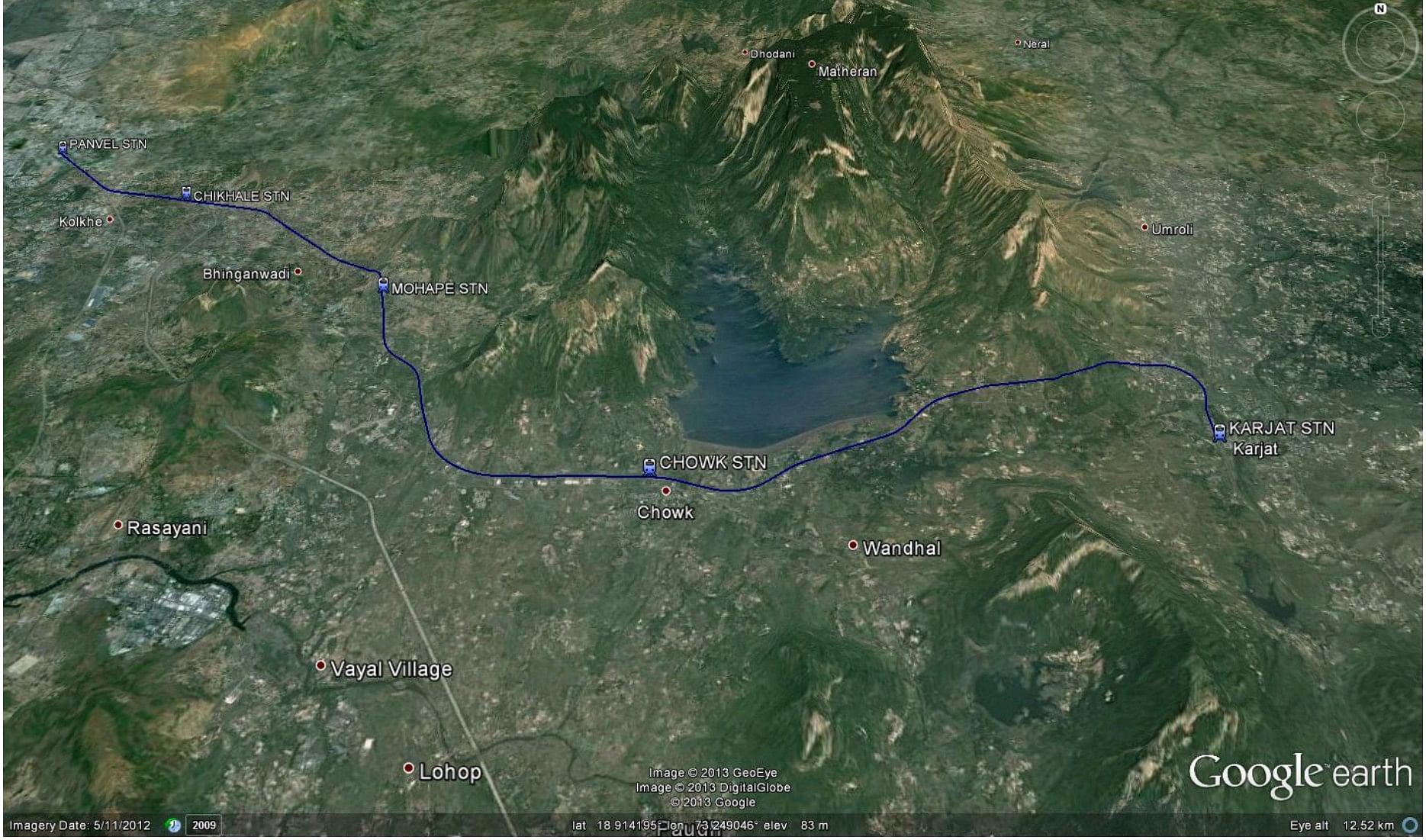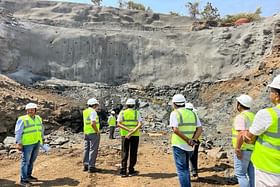The longest tunnel on Mumbai’s suburban rail is being built as part of the Panvel-Karjat line.
The controlled blasting activity for Wawarle tunnel (2.6 km), the longest on the Panvel-Karjat line was carried out by Mumbai Rail Vikas Corporation (MRVC) on Thursday (23 February).
There will be five stops along the 30 km length of Panvel-Karjat line.
Inaugural blast at both portals P1 & P2 of longest tunnel on Panvel-Karjat Suburban project ie tunnel no. 2 of length 2.6 Km was conducted today in presence of CMD @MrvcLtd. Completion of this tunnel is a critical activity in the project completion timeline. pic.twitter.com/6JbyPa5lpT
— MRVC Ltd. (@MrvcLtd) February 22, 2023
Three tunnels, two rail flyovers, 44 main and minor bridges, 15 roads under bridges, and seven road over bridges will be built along the Panvel – Karjat Line.
The three tunnels on the route are the Nadhal hill tunnel (219 m), the Wavarle hill tunnel (2.6 km), and the Kiravali hill tunnel (300 m).
The Parsik tunnel, which connects Thane and Diva, is currently the longest (1.3 km) tunnel on the Mumbai suburban line. The tunnel’s construction began in 1906, and it opened to traffic in 1916.
The Panvel-Karjat section currently has a single line that is used for the operation of a few long-distance passenger trains and goods trains.

To transform the stretch into a suburban corridor, one more track will be added, as well as new station buildings at Mohope, Chowk, Karjat, Chikhale, and Panvel.
Subhash Chand Gupta, chairman and managing director, MRVC, said this double-line corridor will provide an alternative route from Mumbai to Karjat via Panvel, reports Hindustan Times.
“This additional suburban corridor will also work as a catalyst for further economic development of fast developing Panvel, Karjat and NAINA (Navi Mumbai Airport Influence Notified Area),” Gupta added.
The project’s estimated cost is Rs 2,782 crore.
Completion of the Wawarle tunnel is a critical activity in the project completion timeline. The completion deadline is set for December 2025.
Significance of Panvel-Karjat Suburban corridor
However, since the Navi Mumbai region, particularly the Panvel area, has seen significant urbanisation and population growth in recent years, and the area between Panvel and Karjat is also rapidly developing, there is a rising demand for suburban train services to Karjat via Panvel.
Passengers travelling between CSMT and Karjat will be able to save 30 minutes of commute time once the project is completed. The rail commute between Karjat and CSMT currently takes two hours and 10 minutes, which will be reduced to up to 100 minutes by travelling on the Karjat-Panvel-CSMT route, according to MRVC officials.


